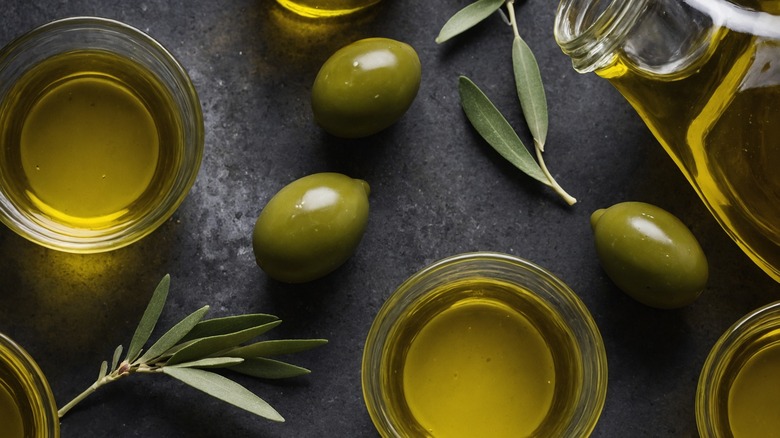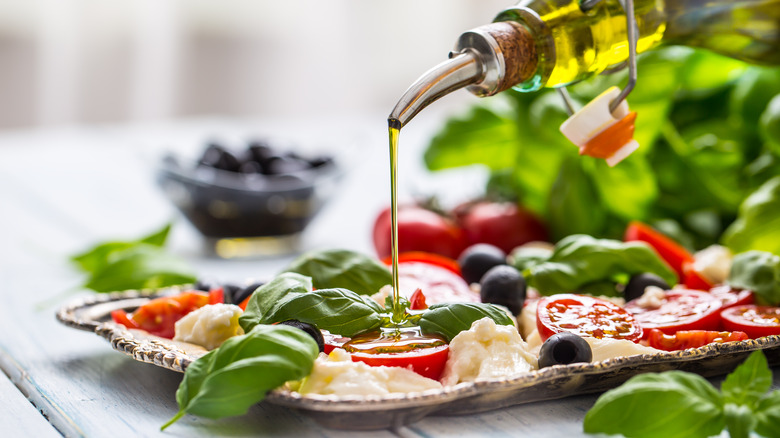When It Comes To Storing Olive Oil, Think Of HALT
Olive oil is a kitchen MVP, bringing rich flavor and health benefits to all sorts of dishes. But keeping it in prime condition? That's where HALT comes in. That is, heat, air, light, and time are the four villains you need to watch out for as they're responsible for breaking down the goodness in your olive oil, turning that liquid gold into something much less appealing. Rule number one: keep your olive oil far away from the stove (tempting as it may be) because heat is a fast track to spoilage. And sure, clear bottles might look cute on your counter, but they let in too much light and speed up flavor-ruining oxidation. Stick to dark, cool storage spaces instead — your olive oil will thank you for it.
Overly cold temperatures can also be a problem for olive oil. There's a reason people warn against refrigerating certain foods, and olive oil is one of them. While it'll return to its liquid form when warmed, solidified oil isn't easy to use. It's better to keep a small amount at room temperature for daily use, while the rest stays cool and dark (perhaps in a pantry) to maintain its freshness.
When it comes to extra-virgin olive oil, there's more to it than you might think and proper care goes a long way in preserving its quality. Shield it from light and air by storing it in well-sealed, tinted containers to keep it safe from HALT's effects. With a little attention, your olive oil will stay fresh and delicious, ready to enhance everything from simple salads to roasted vegetables.
Getting the most out of every drop
Now that you've HALT-ed your way to proper olive oil storage, let's talk about getting the most out of every drop. Be thoughtful about how you use olive oil, especially when it comes to cooking temperature. Extra-virgin olive oil is bursting with flavor, but if you're cranking up the heat too high, you'll lose some of its best qualities. Instead of frying away its delicate notes, reach for another cooking oil, then finish dishes with a drizzle of this golden elixir. Trust us — olive oil ice cream is a thing and it's kind of amazing.
Perhaps most popularly, extra-virgin olive oil is used to dress salads and other cold or room temperature dishes. When it comes to common mistakes people make with hummus, not using high-quality olive oil can leave your dip falling short of its full potential. The fruity, peppery, and slightly bitter notes of good olive oil enhance the flavor of hummus without overpowering the other ingredients. In some cases, it can be used for light frying, offering a healthier alternative to other fats and oils. Used thoughtfully, this seemingly simple ingredient elevates the flavors of any dish, spotlighting its subtle, nuanced notes that create a full gastronomical experience. A little drizzle is all it takes to bring your dishes to life and give them that finishing touch.

